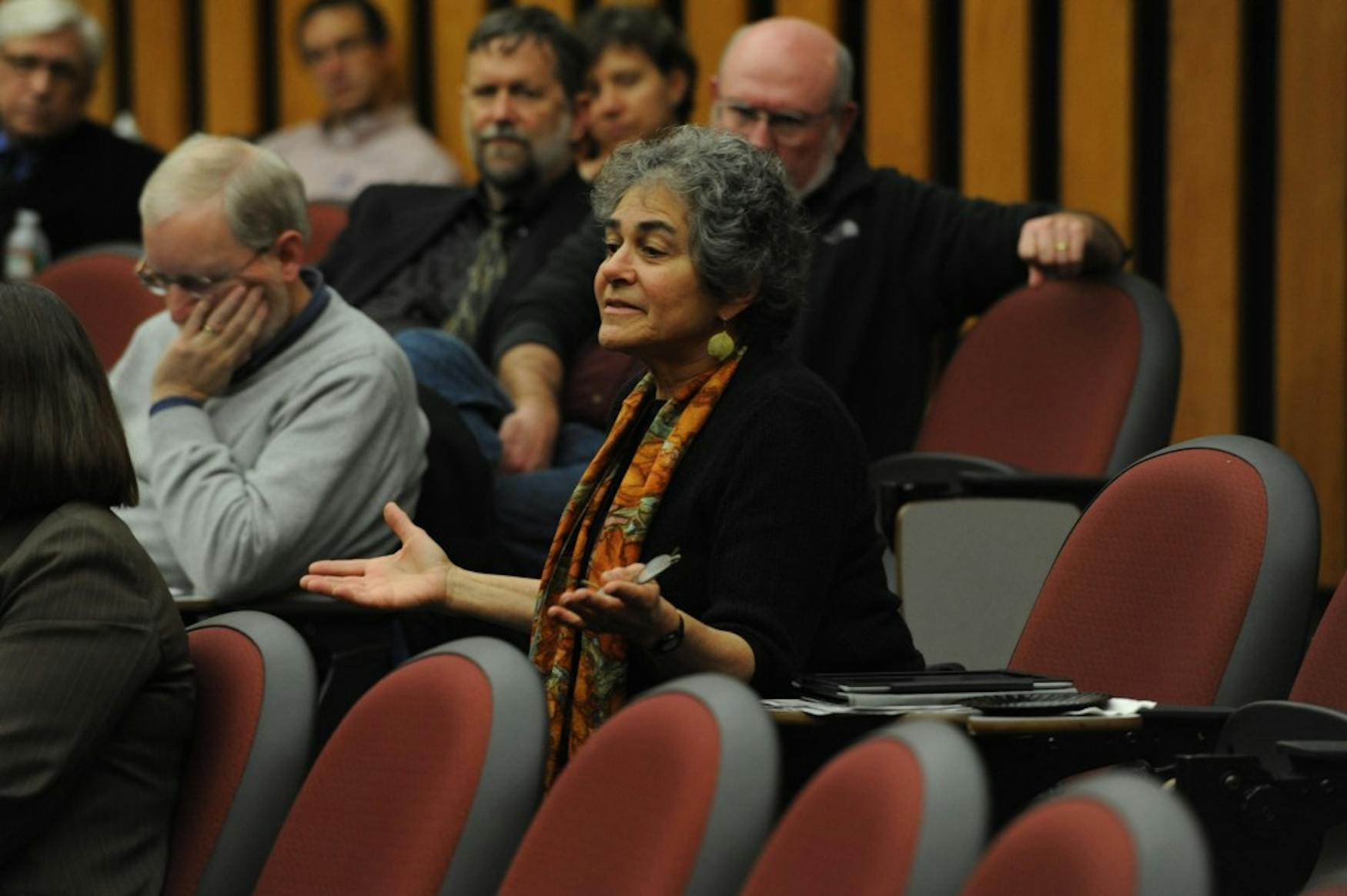University sees rise in international students
Senior Vice President for Students and Enrollment Andrew Flagel announced unofficial admissions statistics for this year’s class of first-years at the monthly faculty meeting last Thursday.
Twenty-four percent of the 859-student class are international students, up from 16 percent in 2012. Of those students, 77 percent are from China.
According to Flagel, this large increase was due to an unexpectedly high matriculation rate, or yield, in students from China.
Several professors at Thursday’s meeting questioned how these changes in demographic trends in admissions might affect the University in the present and the future.
Prof. Ilan Troen (NEJS) asked about the implications of the dramatic rise in international students on the internal structure of the University.
In response, Flagel described an “infrastructure on the administrative side where we … added additional orientation support, additional writing support, additional tutoring support, added a Mandarin speaking counselor in the Psychological Counseling Center.”
Troen clarified that he was concerned about the fact that admissions policy drives change in the structure of the University.
“I’m not sure that’s what ought to be. It’s certainly something that ought to be discussed … What should the character of Brandeis be?” Troen said.
Prof. Steven Burg (POL) also asked several questions of Flagel, including what the target enrollment for international students is for next year.
Flagel said that “if yield holds where it did this year, then we would be back under 20 percent of our class being from overseas.”
Flagel also addressed statistics from the first batch of test-optional applications that came in this year as part of a two-year pilot program. There were 783 applicants who chose the test-optional application, out of 10,004 total applicants. 314 of those who applied test-optional were admitted, or roughly 40 percent.
For the class as a whole, the acceptance rate was 35.22 percent, down from 39.11 percent in 2012.
The class of 2018 is six percent African-American and six percent Hispanic, according to Flagel. Twenty-eight percent of the class is from New England, 25 percent is from the mid-Atlantic and 23 percent is from the rest of the United States.
Also at Thursday’s meeting, Faculty Senate Chair Prof. Thomas Pochapsky (CHEM) announced that the Faculty Senate is planning a forum about academic freedom and civility and invited members of the faculty to participate in planning the event.
The announcement came in the wake of a heated discussion about the “Concerned” faculty Listserv at last month’s meeting, when several faculty members debated the appropriateness of comments made on a private Listserv and University President Frederick Lawrence’s response to those comments.
The meeting opened with a memorial tribute to Professor Emeritus Fred Sommers (PHIL), who passed away on Oct. 2 at the age of 91.
In his eulogy, Prof. Andreas Teuber (PHIL) said that Sommers had a fruitful career filled with “moments of brilliance and startling originality.”
According to Teuber, Sommers’ unique approach to philosophy involved wanting to solve philosophical problems that were “manageable.”



Please note All comments are eligible for publication in The Justice.